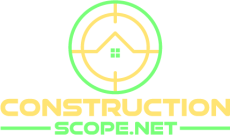Starting a construction business can be a rewarding venture, but it requires careful planning and execution. Whether you’re an experienced contractor or a newcomer to the industry, this step-by-step guide will help you navigate the process of launching your own construction company. There is a available screw air compressor for sale.
Conduct Thorough Market Research
Before diving into the construction world, it’s crucial to understand your target market and competition. Research your area’s demand for construction services and identify your potential clients. Analyze your competitors to determine what sets you apart and how you can offer unique services or competitive pricing.
Create a Detailed Business Plan
A well-structured business plan is the foundation of your construction business. Outline your company’s mission, vision, and values. Define your niche within the construction industry—residential, commercial, industrial, or a specific trade like plumbing or electrical. Include financial projections, startup costs, and a marketing strategy. A solid business plan will guide your decisions and help secure financing if needed.
Legal and Regulatory Compliance
Ensure your construction business complies with all legal and regulatory requirements in your area. This includes registering your business, obtaining the necessary licenses and permits, and adhering to safety and environmental regulations. Consult with legal and accounting professionals to ensure full compliance.
Secure Financing
Starting a construction business typically requires a significant equipment, materials, and labor investment. Explore your financing options, which may include personal savings, loans, grants, or investors. Create a detailed budget to allocate funds efficiently and manage your cash flow effectively.
Choose a Business Structure
Select a suitable business structure for your construction company, such as a sole proprietorship, partnership, limited liability company (LLC), or corporation. Each structure has its own advantages and legal implications, so consult with a legal advisor to make an informed decision.
Obtain Insurance
Construction is a high-risk industry, so insurance is essential to protect your business and assets. Consider liability insurance, workers’ compensation insurance, and equipment insurance to safeguard against accidents, injuries, and property damage.
Acquire Industrial Equipment
Industrial equipment is the backbone of any construction business. Depending on your niche, this may include excavators, bulldozers, cranes, concrete mixers, or specialized tools. Research and invest in reliable industrial equipment to ensure your projects run smoothly. Consider leasing or financing options if there are other options than purchasing equipment outright.
Build a Skilled Team
Hire experienced and skilled professionals for your construction team. This includes project managers, contractors, subcontractors, laborers, and administrative staff. Develop a strong company culture emphasizing safety, quality workmanship, and professionalism.
Develop Relationships with Suppliers
Establish relationships with suppliers and vendors for construction materials and supplies. Negotiate favorable terms and pricing agreements to maximize your profit margins. Reliable suppliers are crucial to keeping your projects on schedule and within budget.
Marketing and Branding
Create a strong brand identity and online presence for your construction business. Develop a professional website showcasing your services, portfolio, and client testimonials. Utilize social media, search engine optimization (SEO), and digital marketing to attract clients. Networking within the industry and joining local construction associations can also help you build valuable connections.
Secure Contracts and Projects
Begin bidding on construction projects and contracts. Networking, attending industry events, and maintaining a positive reputation are key to winning bids. Develop detailed proposals and contracts outlining project scope, timelines, costs, and payment terms.
Focus on Quality and Safety
Prioritize quality workmanship and safety on every project. Implement strict safety protocols to protect your team and clients with hi vis workwear and good safety equipment. Deliver projects on time and within budget to build a strong reputation and gain repeat business.
Grow and Adapt
As your construction business grows, be open to adapting to market trends and expanding your services. Continuously invest in professional development for yourself and your team to stay competitive.
Starting a construction business requires careful planning, financial discipline, and a commitment to excellence. By following these steps and staying focused on providing quality service, your construction company can thrive in a competitive market. Industrial equipment is just one piece of the puzzle, but your business can build a solid foundation for success with the right strategy and dedication.

